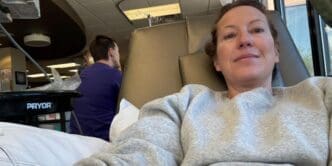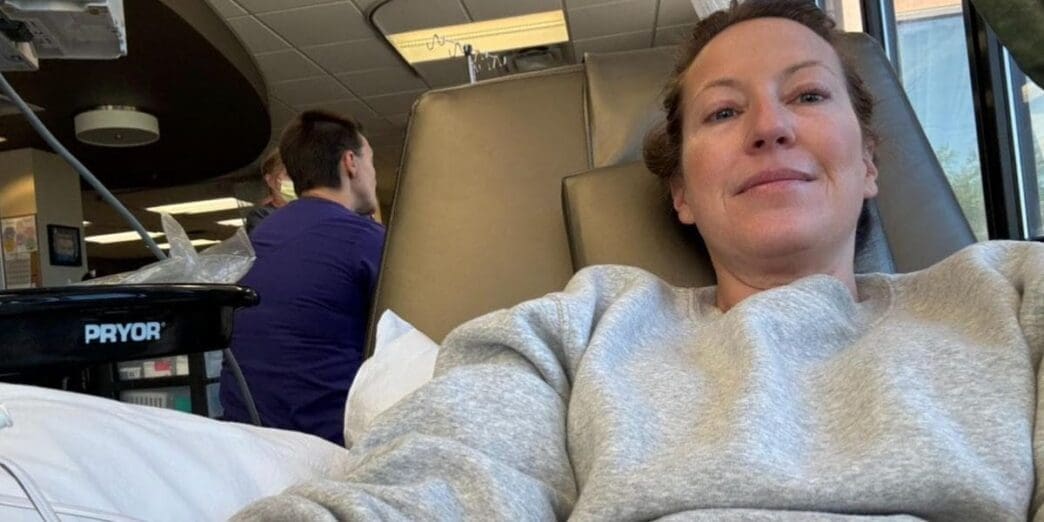“Halfway through my first hot yoga class in over a decade, I was hit by a wave of unbearable heat, unlike anything I’d experienced before,” shares Anna Sullivan. While the spandex-clad participants continued in coordinated movements, Anna found herself retreating to a child’s pose, overwhelmed by an intense hot flash. In that moment, the words of the instructor seemed to speak directly to her soul — “If you want to experience growth, you need to do more” — pushing her to her limits. This was just one of the many drastic changes she encountered as a result of induced menopause following a shocking medical diagnosis.
Returning to a semblance of normalcy had been Anna’s primary focus since her breast cancer diagnosis, which began with the discovery of a marble-sized lump above her right breast in October 2017. Initially attributing it to lingering effects of nursing her son, she was unprepared for the news that would follow: early-onset and estrogen receptor positive breast cancer. This meant she could bypass chemotherapy, but not the drastic hormonal treatments to follow.
Anna remembers her oncologist somewhat matter-of-factly explaining that the prescribed Letrozole and Lupron injections would send her into menopause. Unfamiliar with the subject, she had little idea of the challenges ahead. The onset of symptoms was sudden and overwhelming: insomnia, night sweats, mood swings, and hot flashes became her new norm. “At 37 years old, I was Benjamin Button in reverse,” she reflects, feeling as though she had aged 20 years in a mere fortnight.
These medications had effectively commandeered her body, thrusting her into the throes of menopause. The emotional and physical toll was considerable. Nights were often punctuated by cold sweats, while her daily life was marred by aches and fatigue, all unfamiliar and isolating experiences within her peer group. “Have you tried homeopathic remedies?” her primary care physician asked sympathetically, prompting Anna to explore alternative solutions in the vast market of supplements and treatments.
This journey through induced menopause was not just a battle with symptoms but an exposure to the growing commercial industry surrounding menopause, with products promising youth and vitality. Despite trying numerous remedies, from vitamin supplements to pricey skincare serums targeting menopausal symptoms, Anna found most offered little relief beyond their alluring packaging and promises.
Through trial and reflection, Anna discovered that managing menopause required more than just band-aid solutions. She embraced changes to her lifestyle, focusing on health that promoted future well-being, like adjusting her exercise routine to support bone strength and mobility. Her journey also led to introspection about societal standards of beauty and aging, emphasizing self-worth that transcends age.
This experience became a lens through which Anna reassessed life’s values. Family, health, and relationships took precedence over societal expectations. Although her cancer journey forced early confrontation with mortality, it offered clarity on life’s essentials, putting her focus not on preventing aging but on embracing it.
Anna Sullivan’s story is a testament to resilience and the unexpected lessons learned through health challenges. Her experience with cancer and induced menopause acted as catalysts for personal growth, leading her to prioritize what’s truly important: family, health, and self-acceptance. In redefining her expectations, Anna found empowerment in aging, focusing on living meaningfully rather than succumbing to external pressures. “Sometimes,” she shares, “it’s enough to just show up, breathe, and embrace the changes life throws your way.”
Source: Yahoo







